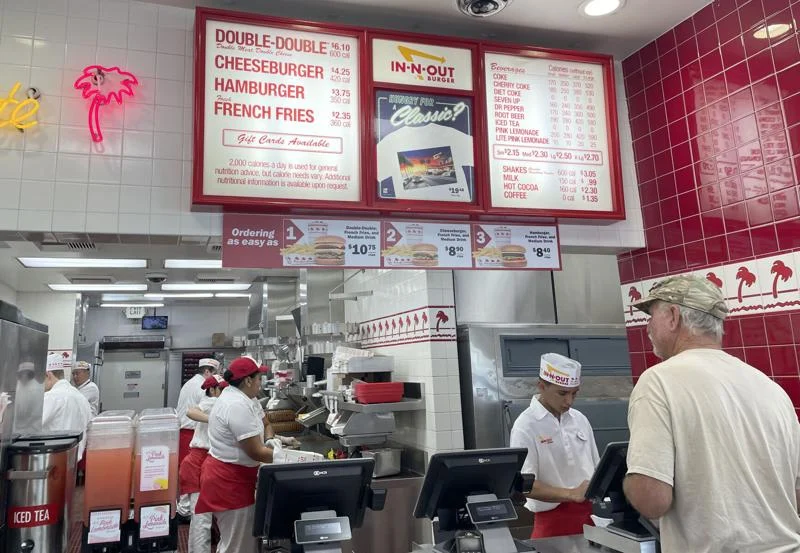A worker fired from In-N-Out filed a lawsuit seeking $3 million in damages and $200,000 in lost pay, citing California’s hair discrimination law.
The worker, who identifies as an African-American male, is citing the Create a Respectful and Open Workplace for Natural Hair (CROWN) Act, signed into law by California Gov. Gavin Newsom in 2019, as the primary basis for his case.
In-N-Out, a fast food chain known for its high standards and high pay, has a policy of requiring male employees to be clean-shaven and tuck their hair under company-issued caps that prevent hair from falling into food.
Under the CROWN Act, California expanded racial anti-discrimination protections to include “hair texture and protective hairstyles,” defining “protective hairstyles” as including “braids, locks and twists.”
The act also included a legislative declaration that “continuing to enforce a Eurocentric image of professionalism through purportedly race-neutral grooming policies that disparately impact Black individuals and exclude them from some workplaces is in direct opposition to equity and opportunity for all.”
The worker began working for In-N-Out, which offers higher pay than other fast-food employers, and provides access to medical, dental education, and even vacation benefits to part-time workers, in the summer of 2020 after graduating from high school.
The lawsuit outlines that In-N-Out, which issues employees crisp, mid-century-style uniforms, “maintains grooming and uniform policies requiring male employees to be clean-shaven and wear company-issued hats in which all hair must be tucked underneath.”
The worker’s suit alleges that he “wore his natural hair in a style consistent with his racial and cultural identity,” and that “as his hair grew longer, plaintiff was … advised to cut his hair or alter it so that it could fit entirely under the uniform hat.”
Notably, this policy of requiring hair to fit under the uniform hat also applies to women, who make up a large portion of the company’s restaurant staff.
“In an effort to comply, plaintiff began braiding his hair. However, defendant’s management advised plaintiff that his sideburns, part of his hairstyle also needed to be removed, which plaintiff found humiliating and discriminatory,” the lawsuit continues.
The worker alleges that when he could not “continuously conform to the grooming expectations without compromising his cultural identity,” he began to be “scrutinized more harshly” than other workers and reprimanded for infractions that other employees were often not disciplined for, resulting in “denied opportunities for promotion and advancement.”
In May 2024, the worker says he was instructed by his supervisor to go home, shave and return.
“Rather than comply with what he believed to be a discriminatory and unnecessary grooming requirement, plaintiff messaged his supervisor and stated that he would return at his next scheduled shift,” the lawsuit says.
The lawsuit demands a jury trial for $2 million in non-economic damages for emotional distress, $1 million in compensatory damages, and $200,000 in pay, in addition to attorneys’ fees, interest, and possible other relief.
On Jan. 25, 2025, the California Civil Rights Department responded to the worker’s discrimination complaint, and provided a “right to sue notice.” By deciding to pursue a “right to sue notice,” the plaintiff also opted to close the CRD’s investigation into the matter.
According to the CRD, pursuing a trial also means the CRD will not file a complaint to the U.S. Equal Employment Opportunity Commission on the worker’s behalf.
In-N-Out has declined to comment on the ongoing litigation.
In-N-Out, which was founded in California, has recently moved some corporate operations to Tennessee, closing one of its main California offices in Irvine.






